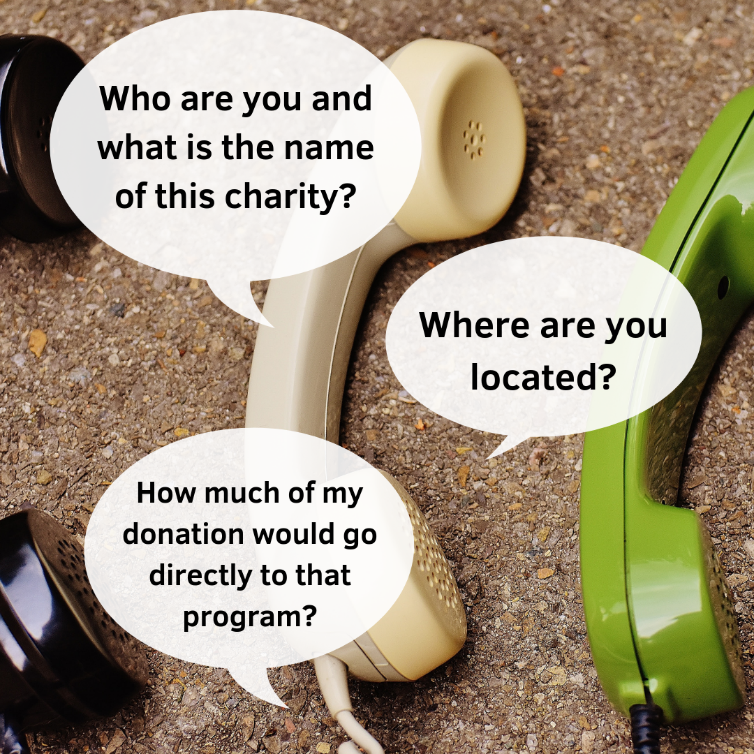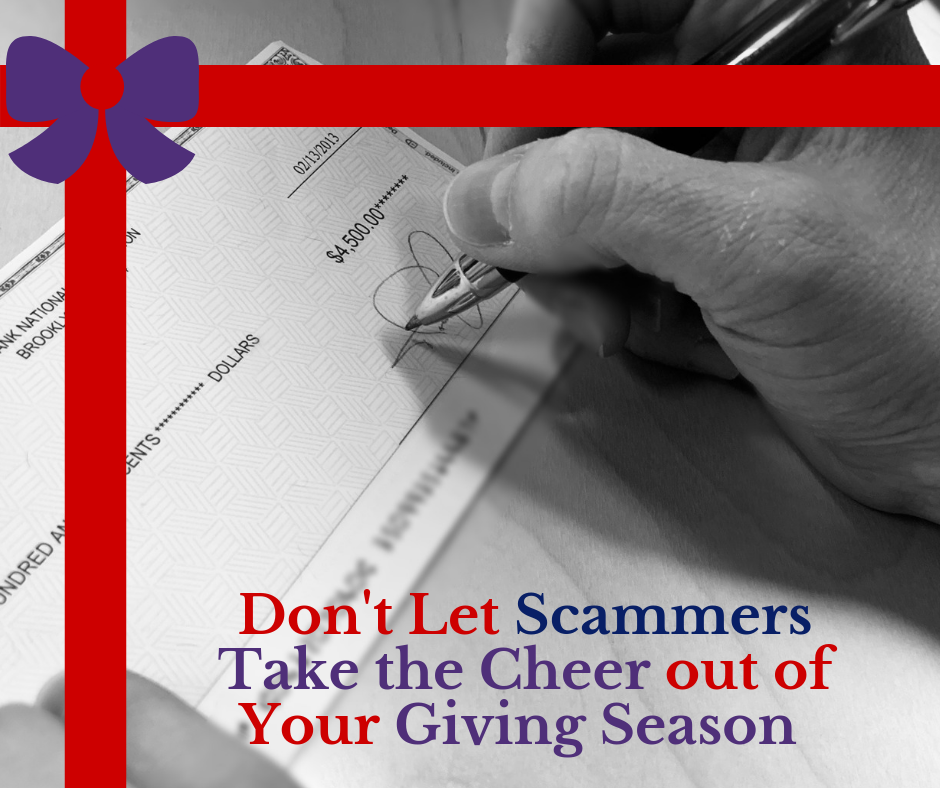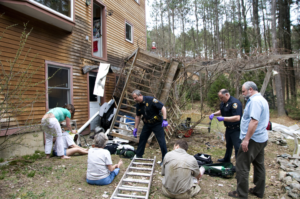Scammers will say just about anything to get your money! Unfortunately, this includes pretending to be charities. For Military Consumer Month, we’d like to share some information about how you can securely give to legitimate charities who support our service members, and avoid scams.
For more information, watch and share this video produced by the Federal Trade Commission: https://www.ftc.gov/news-events/audio-video/video/stop-veteran-charity-scams
If you receive a charity solicitation over the phone, ask questions!

As noted in our post from November 2018, it’s important to do your homework before giving. Here are some steps you can take:
- Research the cause before donating. Helpful websites, like Charity Navigator and the Better Business Bureau’s Giving Wise Alliance (BBB), have information on charities.
- Double-check solicitation mailing addresses and phone numbers. Ask fundraising callers to mail you the solicitation first, so that you can check the contact information.
- Look for paid fundraiser information. A paid fundraiser is a third-party solicitation company that, aside from the fundraising campaign, is not affiliated with the charity. This means that a portion of the funds raised are split between the charity and the soliciting business. Vermonters can ask if a third-party fundraiser is involved. For information about paid fundraisers, see the “Charities” section on the CAP website.
- Still unsure? If you receive a solicitation that seems suspicious, but just aren’t sure, give the Consumer Assistance Program a call: (800) 649-2424. We’re happy to help.
Contributing Writer: Madison Braz
Content Editor: Crystal Baldwin
Resources: Federal Trade Commission

 As a little girl, I fondly remember watching my dad open scores of charitable solicitations, some containing gifts of greeting cards or address labels, others with a simple request to help their cause. This giving season, I am now the one who opens the mail with thoughtful poise and consideration, “Which causes should I support this year?” In this time of giving, many of you may be asking the same question. To help you decide, I’ve outlined the steps that I take before giving:
As a little girl, I fondly remember watching my dad open scores of charitable solicitations, some containing gifts of greeting cards or address labels, others with a simple request to help their cause. This giving season, I am now the one who opens the mail with thoughtful poise and consideration, “Which causes should I support this year?” In this time of giving, many of you may be asking the same question. To help you decide, I’ve outlined the steps that I take before giving:
